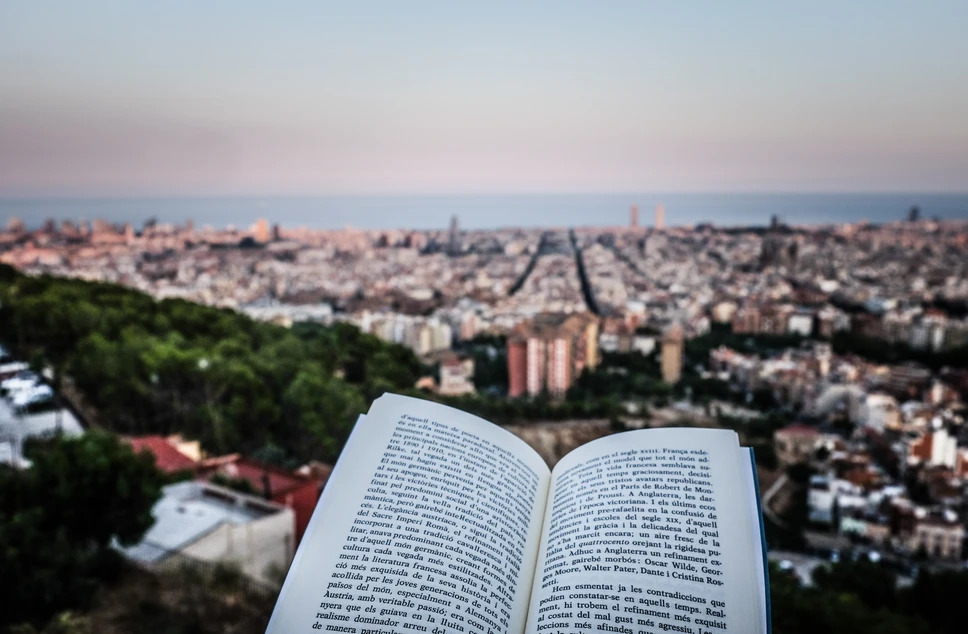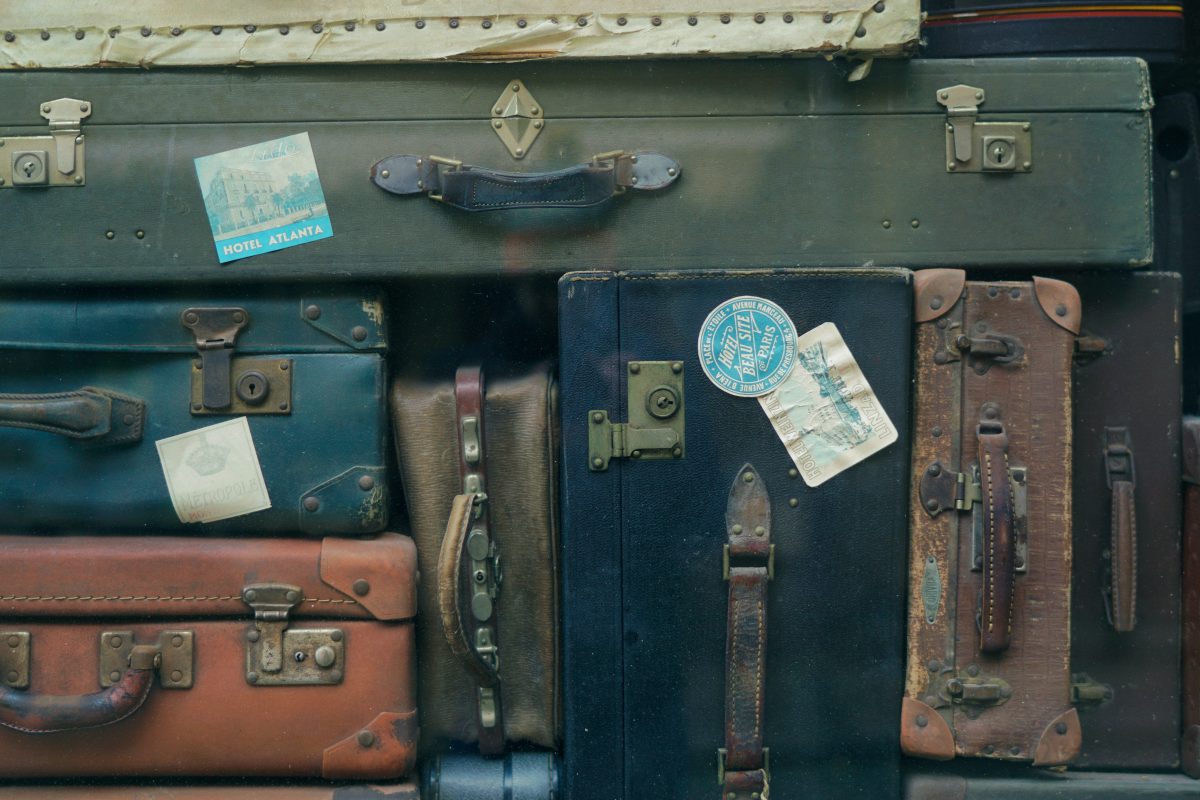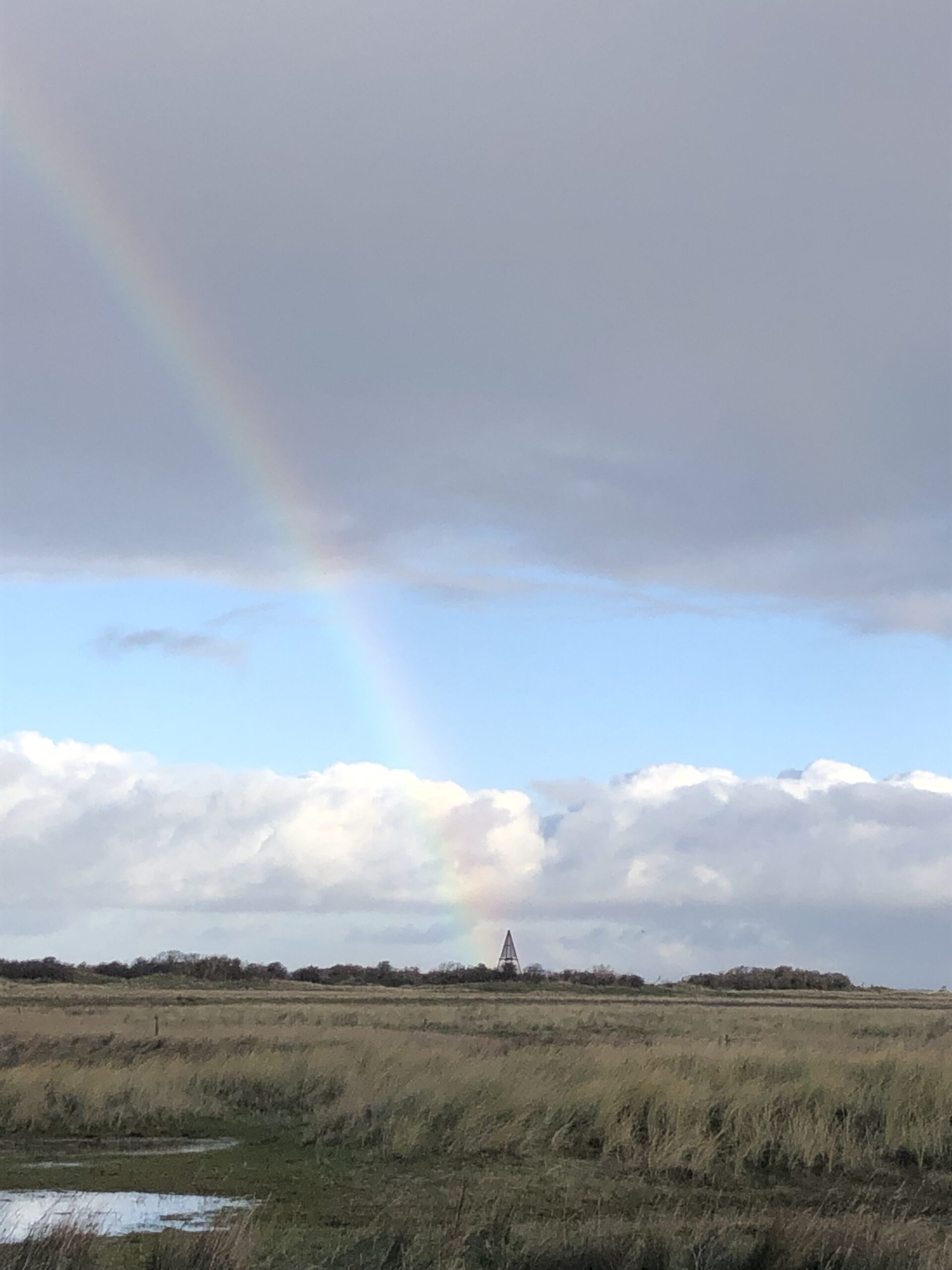“This story was inspired by my stay as a writer-in-residence in Vil·la Joana in Barcelona, part of the Cities of Literature network, a fantastic place that I shared with fantastic fellow writers (gracias chicas…). It was a chaotic time in Barcelona, and I worked that into my story. On Tuesday 30 July the temperature in the city reached a record high of 40º C, which came as a shock to the locals and was almost unbearable.”
“On Thursday 8 August, Carles Puigdemont, the former president of the Catalan government and a prominent advocate of independence from Spain, turned up in Barcelona. He had spent the previous seven years in Belgium, because he was wanted by the Spanish authorities in connection with the independence referendum that he organized in Catalonia in 2017. He popped up near the parliament buildings, made a speech, and vanished again immediately afterwards. The Mossos d’Esquadra, the Catalan police, tried to take him into custody, causing major traffic jams and sending out helicopters above the city, but he eluded them. It eventually became clear that Puigdemont had already returned to Belgium, with help from within the Mossos d’Esquadra. The event threw Barcelona into turmoil and dominated the news for weeks.”
KEEPING TIME – Albertina Soepboer
2:56 am
The clock has run into some trouble. His workings creak, incessantly demanding oil. The hot night wraps itself around him like a blanket. The temperature is 25 degrees Celsius. The hills are asleep. The trains to and from Barcelona are on time. The question is whether the same can be said of him, the clock, tonight. It should be just a few more minutes now. He listens. To the silence around him. To the time that has passed, but pulses, pulses inside him like a heart. In all his memories.
The things to come—that’s a thornier problem. It’s as if they are drifting away, he and his clockwork can’t keep up. They can’t seem to demarcate the moments, to give them meaning. For example, two new women arrived this afternoon. He saw them coming, of course; he sees everything from here on the hilltop. They were lugging their suitcases up the hill from the station and kept pointing at him. He is old, he is used to people pointing. The women withdrew into the villa from which he rises, which is partly a museum. He hasn’t seen them since. Most visitors come to view his clockwork innards. Maybe the weather was too hot for them.
He strikes three.
4:32 am
Eulalia sits bolt upright in bed and covers her ears. The sound is so loud it’s unbearable. At first, she thinks she must be dreaming, but after a splash of water on her face and a glance in the mirror, she knows she’s awake. The clock, she thinks, could it be that bombastic thing. Her telephone shows the time. She sees it. No, it’s not the clock. She goes out into the hall. It’s dark in the villa, all the shutters are closed to keep out the heat. It hasn’t helped. The heat is omnipresent, as if Eulalia has wandered into a kitchen where the ovens have been on for hours. In the corner, red light is dancing on the wall. A moment later she’s found it: an alarm going off, above a large red button. Pressing the button doesn’t help. The alarm ignores her completely, continuing its deafening racket.
Then Teresa is standing next to her, groggy.
“What is this?”
“An alarm. We’d better find the caretaker, pronto,” she shouts.
They hurry down the corridor and knock on the caretaker’s door. No response.
“Shit,” Eulalia says.
“Fire? A break-in?” Teresa asks.
Eulalia thinks of the darkness, the withered forest around the villa, the soil that has dried to dust.
“Come on, let’s go see for ourselves,” Teresa calls out.
They turn on the flashlights on their cell phones and cautiously go down the stairs. They can’t see or smell anything out of the ordinary. Then they open the window. Another infernal racket—the alarm must be going off outside too. They shine their flashlights around. Nothing. No smoke. No suspicious people. Absolutely nothing.
The alarm just won’t stop. They decide to call the Mossos. At first, the policeman doesn’t understand.
“You mean you’re in a museum now, in the middle of the night? With an alarm going off?”
“Yes, that’s right.”
A brief silence.
“Have you seen any signs of fire? Or burglary?”
“No, but it’s dark and the building is in the middle of the woods. We just arrived and don’t really have our bearings yet.”
“So nothing substantial. No, ma’am, in that case we can’t help you.”
Teresa sighs as the policeman ends the call.
5:47 am
It’s been a confusing night. The difficulty of making himself heard on time, the alarm making such a ruckus, and those two women shining their flashlights at him. It’s dark and he is alone with the hills, the pine trees, and his memories. That should be a comfort to him, but it isn’t. He’s worried. All these things that keep happening, things he can’t follow. Time has a purpose, he thinks. For example, it draws a line between day and night.
6:22 am
Flies and moths are flying around on the balcony, remnants of the night. Eulalia and Teresa wait for the sky to turn blue above the hills. Finally, the temperature outside is pleasant. They drink coffee together. When the first beams extend over the hilltops, Teresa retreats into her room to try to get some sleep. Eulalia goes downstairs, eager to have a look at the garden while it’s still so deliciously cool out. The garden is shriveled. Dust and dull shades of grey-green wherever she looks. Wizened succulents in pots. A large hose leading to the pine trees. She has just set off in that direction when she notices something rooting in the soil. It’s an enormous beast. A wild boar. As she takes a second astonished look, she notices two piglets wandering around beside it. The boar is already preparing to charge toward her as she slowly turns around and walks back inside the museum. Eulalia is hyperventilating. Wild boars live in forests, don’t they, she wonders, far from civilization. No, apparently not. Beads of sweat are running down her forehead. And the day is just beginning.
6:53 am
It had almost gone wrong. He had nearly failed to strike six. Just before the hour, two men came into the clock room. One leaned a ladder against the wall and climbed to the top to remove the fire alarm from the ceiling. The hot weather broke it, he explained to the caretaker. He wonders how long this heat wave will continue. The stones of the tower are already so searingly hot. He can’t remember ever going through heat like this. And now the fire alarm is broken. Oh, fire, yes, he remembers that. Tall red tongues licking straight through the pine trees. A wild wind nimbly whipping up a sea of flames. There, there, he mustn’t let his own memories frighten him. It’s almost time to strike seven. After all, the morning is just beginning. He has a job to do.
7:15 am
Eulalia has managed to start up the laptop. She searches for wild boar. There’s a plague of them here in the Parc de Collserola. They crash into cars, overturn trash cans and devour their contents, hurtle down sidewalks, terrorize shops. It’s like a video game that’s escaped into real life. She sighs. She’s tired. “Breaking” flashes across her screen. Something about a politician who’s back in Barcelona after seven years. Eulalia turns off the laptop. She needs to get some sleep.
7:43 am
Christ, it was one hell of a job to strike the hour on time. Now he can rest a while. The sun has just come up, he still has cool air around him, and the museum is closed today. In this heat, no one will travel to see a museum dedicated to a dead Catalan poet, however much he might wish they would. The clock and the poet both belong to a different age. An age that’s showing cracks and crumbling to pieces. Just like his own tower. They can hardly maintain it anymore. Now and then a piece of it falls to the ground. And now the fire alarm is broken. Who will warn him if he bursts into flames?
10:05 am
Teresa is standing in the doorway.
“Hey, Eulalia. There’s another bell ringing. Don’t worry, it’s not an alarm this time. But I can’t figure out what it is.”
Eulalia hops out of bed, and they go out into the hall, where a bell is ringing. It turns out to be a doorbell with a screen next to it. Teresa pushes the button. A man with a full head of brown hair appears on screen, panting.
“Could you open the door?”
“Why?” Eulalia says.
“I need a hiding place.”
“Do you have an appointment?” Teresa asks.
“And who are you?” says Eulalia.
The man on the screen looks surprised.
“You don’t know who I am?”
“No,” they reply in unison.
“I’m—” he starts to say.
On the road behind the man, a few wild boars come into view, followed by a speeding car with a blue light. The man panics, disappearing suddenly from the screen.
“A hiding place! Who’s chasing him, the wild boars?” Teresa asks.
“I think we need another cup of coffee,” Eulalia remarks.
2:04 pm
Those last two strokes took a lot out of him. He has the feeling he’s falling behind, maybe only a few seconds behind, but still, he can’t let that happen. Then everything will go off the rails. His clockwork can’t take it anymore, that much is clear. One of the women below him has turned on the radio, and the news is making him nervous. An endless series of reports about a politician in Barcelona who had a good plan for the future of the country and then vanished. It makes no sense to him. The country must be governed, mustn’t it? Then he hears something truly terrifying. His neighbor, the Fabra weather station on the next hill over, has measured the record-breaking temperature of 40 degrees Celsius. He almost faints, but of course he can’t, towers don’t fall over.
3:38 pm
Eulalia and Teresa are sitting in the kitchen. It’s too hot outside to do anything. They’ve left the door open.
“Whores, stupid whores.”
They both spring to their feet and rush to the balcony. Below them, a man is running around in swimming trunks, swearing at two people sitting in the shade of a tree.
“Oh, no,” Teresa says.
The man in the swimming trunks goes on shouting. The people give up and hurry off, in search of a different way into the park. Then the man wanders off. They can hear him shouting through the trees.
“Let’s call the Mossos again. This is getting ridiculous,” Eulalia says.
Eulalia dials the number and is immediately connected to a policewoman.
“There’s a scruffy man in the park here, shouting and scaring people.”
She explains where they are.
“That park is near Barcelona, isn’t it?” the woman asks.
“Yes, why do you ask?”
“Are you sure that man was wearing swimming trunks?”
“Yes. I don’t know what color.”
“OK. Can you describe his hair?”
“His hair? Long, gray, and messy.”
“Not brown?”
“No. Hold on. We did see a man with brown hair here today. He rang the doorbell. We don’t know who he was.”
“What did he want?”
“He said he needed a hiding place.”
“We’ll be right there.”
The call is abruptly cut off.
Five minutes later, a helicopter is circling above the villa. Not long afterward, four Mossos cars come racing toward the house. Eulalia and Teresa are standing on the balcony. The police officers scatter into the woods in all directions. A couple of them are carrying automatic rifles.
“Who is that man?” Eulalia asks.
“A lunatic, a murderer, a jaywalker. No idea.” Teresa says.
Half an hour later, the police officers come running back out of the woods. The helicopter has already left. Eulalia and Teresa take a bottle of white wine out of the fridge. It’s time to cool off. They sit on the balcony, utter silence all around them. And there they stay until the sun goes down and they can finally breathe normally again.
8:18 pm
He is running slow, he knows that for certain now. His clockwork is creaking, moaning, and groaning. He thinks he’s fallen about ten seconds behind. The things happening in the now are not bounded in time anymore. He’s no longer certain how to keep track of them. His memories are turning into whipped cream, sliding in all directions, beyond recovery. He sees the wild boar and her two piglets running into the woods. The animals don’t need him, of course, they have a very different concept of time. He understands that. But surely civilized people need some solid framework for their reality. After all, order is the only path to growth. He sighs. In the distance, the train to Barcelona rattles through the valley. It’s on time, he’s not. The sun is sinking below the horizon. The wind has risen. He thinks about rain, lots and lots of rain. But for now, he’s alone with the approaching night. He needs to cool down. He is no longer keeping good time. He is alone with the approaching night and the time that is slipping away from him.
Albertina Soepboer – August 2024 – Barcelona
English translation by David McKay, based on the Dutch translation by Martsje de Jong and the original Frisian





